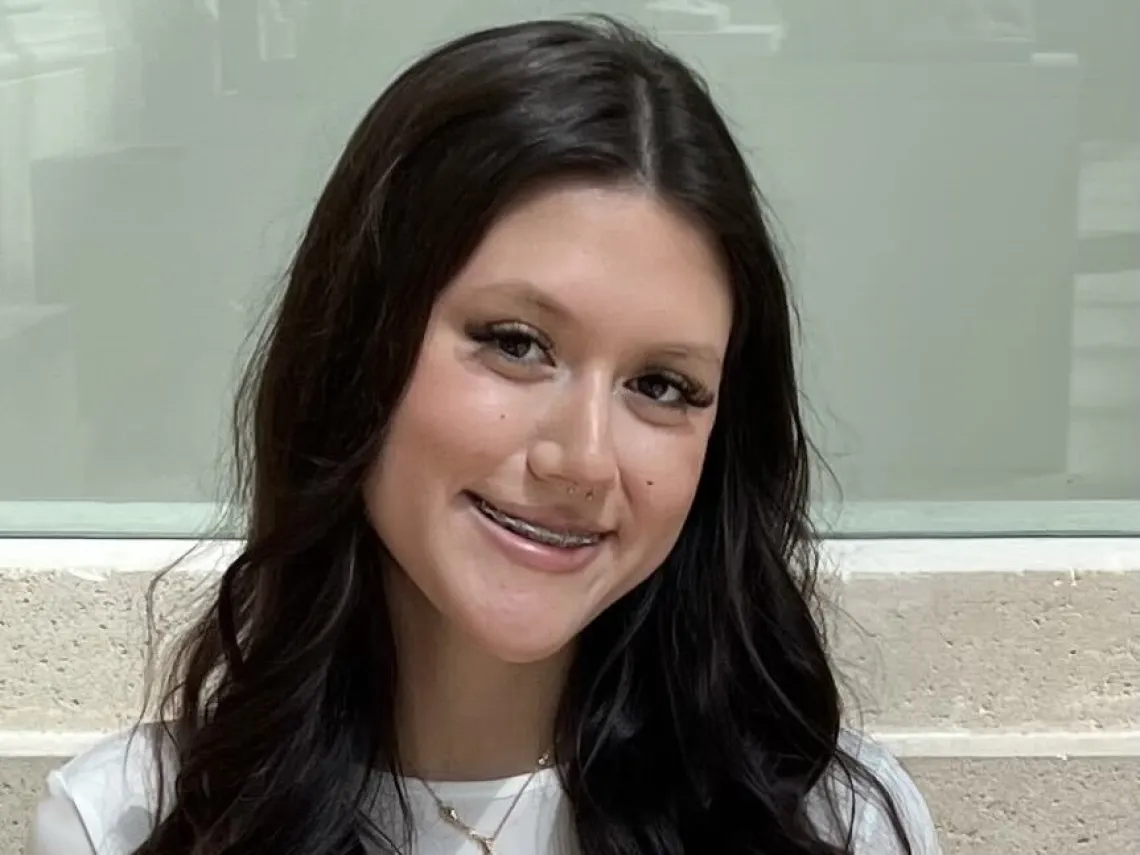Student Spotlight Q&A: Criminology Minor Serena Trujillo

Meet Serena Trujillo! She’s a junior in the College of Social and Behavioral Sciences, majoring in sociology and minoring in criminology. Serena volunteers with the Pima County Restorative Justice Program, where she’s been able to expand her knowledge about restorative justice. In this Q&A, she talks about what got her into criminology, her experiences beyond the classroom, and offers some advice to anyone thinking interested in the minor.
What made you choose the criminology minor and what have you enjoyed most about it?
I chose criminology because I felt it would fit well with my sociology major. This minor helps me educate myself on an understanding of why crime is committed in the first place and all factors surrounding the crime. Our justice system is broken and throws people away because of a lack of understanding. I want to be part of a solution that rebuilds and rehabilitates.
Can you please highlight a professor and what you enjoyed most about their class?
Professor Segura was my professor for the class, Criminal Justice Administration, and he did a great job the entire semester. He always showed up to class prepared and in good spirits which made me want to be in class. He also took the time to get to know me and remembered my name, which does not happen often with my professors. I was not afraid to participate and the content he taught was never difficult to understand. He also encouraged us to reach out and informed us about resources that were available for us whether it be scholarships or career fairs. As a Hispanic student, it is easy to feel ignored and alone, but Professor Segura provided a sense of community for me.
How do you see the field of criminology evolving in the next few years?
I think it will evolve in a drastic and positive way. Coming from a generation that seems to care more about the injustices that go on in our criminal justice system, there has been a lot of change already in very small ways. For example, I see more advocacy and the whole point of the messages are to remind society that those who offend are also people. We must be fair to all parties involved. The Lyle and Erik Menendez case is a prime example of this change and their lives could turn around if they are released or given a reduced sentence. This is due to all the push and fight for new evidence to be considered. I think the field of criminology will continue to right wrongs and fight against biases or stereotypes.
What experience do you have in the field of criminology?
This past summer I was an intern with the Pima County Attorney's Office. Specifically, I worked for Pima County Misdemeanor Problem-Solving Court Enhancement. This program aims to keep its participants out of jail while also helping them go through a treatment plan to remain sober. If the program is successfully completed, the participants can have their charges dropped and will not face any jail time. This is specifically for misdemeanor charges though, and the judge usually recommends the person for the program. The participants may also leave at any point and if they do leave they would go back to jail and finish their sentence. My experience this summer was really informative. Even though I was an intern, I felt included in every sense and was able to meet a few of the participants. The program's team works extremely hard and has constant one-on-one time with the participants. I was able to see two graduations while interning.
I am also a current volunteer with the Pima County Attorney's Office - Restorative Justice Program. We meet with individuals who have committed a crime and with the victims, giving all those affected by a misdemeanor crime the chance to speak about the harm caused. We then work to find solutions on how to repair that harm. [One of those ways] is the Restorative Justice circle program, which is effective and looks to reduce rates of incarceration and recidivism. It’s also a fairly new program in Pima County.
What do you hope to do with your criminology minor post graduation?
Post graduation, I plan on beginning my masters program in hopes of becoming a social worker. With a minor in criminology, my knowledge is relevant and applicable for the desired career goals I have. Ultimately, I hope to work with inmates as my professional career, in a way that improves their livelihood.
What advice would you give to someone considering a minor in criminology?
My advice for those considering a minor in criminology is to be open-minded and always ready to learn and unlearn things you were once shown and taught. This minor is not difficult to engage with, but at times may be frustrating to see the way the system operates. In those frustrations, the best thing I have found to help is looking for a solution or finding a way that is different from what has already been done. Keeping up with what is going on in the world is also really important, that way it keeps the curriculum relevant. Applying lectures to real life experiences helps me absorb and retain the information better.
##

